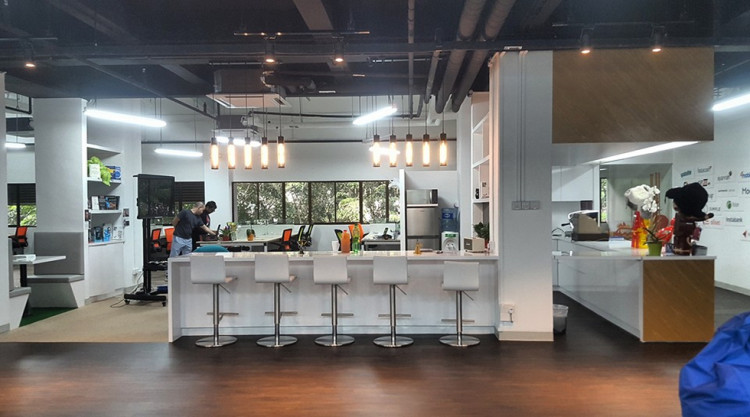
Life.SREDA demo day suggests continued fintech dynamism
https://www.youtube.com/watch?v=Asdh0l_FdD0%20
By Shiwen Yup for DealStreetAsia
Singapore-based fintech venture capital firm Life.SREDA saw the pioneer cohort of its InspirAsia fintech accelerator hold their demo day in conjunction with the opening of their co-working space earlier this month.
Bringing together members of the finance, technology and startup communities, the InspirAsia Demo Day saw developments among its portfolio firms, such as the merging of two firms who underwent acceleration in the same cohort – Softpay and Posseple, two POS-focused startups.
According to Life.SREDA, the decision to merge was driven by the desire for economies of scale and leveraging the strengths of the respective teams; the merger will see their products being integrated, with the Posseple team moved to Vietnam and launching their solution based off SoftPay’s infrastructure and distribution network.
Filipino remittance startup Ayannah, which recently raised $3 million in a Series A round ld by 500 Startups in December 2015, also conducted a slight pivoting of the core business, repositioning it by adding Big Data AI technology from machine learning startup Adatos. This technology partnership not only served to enhance value for customers by allowing them to review their transaction history, but has enhanced the value proposition of Ayanna as the partnership with Adatos now allows them to offer loans.
Commenting on the types of entrepreneurs that their portfolio attracted, Igor Pesin, the investment director and CFO of Life.SREDA, shared with DEALSTREETASIA:
“I think that Asian Fintech in general has many more path finders than path creators in terms of technology and products. But in terms of execution, building new business models based on these products, finding new ways of monetisation, I believe that local fintech startups are path creators.”
Pesin added, “Regarding our batch [Inspiria 2015/2016 alumni], we see both path finders and path creators. Some of our companies are at a later stage than others and they were literally one of the first companies in their vertical like Lenddo in bigdata or Fastacash in social remittance. Others don’t create an industry, they just adopt and add local expertise to successful examples from US/EU markets like Yolopay is doing similar product to Simple bank or SoftPay is going the same way as Square.”
In addition, other ventures have been leveraging off their fellow portfolio firms’ business partnerships and distribution networks; Mobikon, a Singapore-based CRM/marketing platform with a strong presence in India and Singapore leveraged on Softpay’s presence and popularity in Vietnam to enter the emerging market, with reduced difficulty.
Commenting on their new co-working space, Pesin stated: “We are firmly convinced that it is the synergistic capabilities of Accelerator programs that make them so popular amongst startup communities all over the world.
He added, “In fintech, this means that instead of startups spending resources on dealing with competition, they are able to better invest in stronger business solutions while at the same time enjoying the benefits of strong partnerships.” However, the launch of their new co-working space comes amidst the launch of an host of accelerator programmes and other initiatives sponsored by large local banks in the city-state, such as OCBC, UOB and DBS.
Speaking on this development and its impact on the relationship between fintech venture capitalists and large financial institutions (FIs), Pesin elaborated to DEALSTREETASIA:
“To my mind VC-backed accelerators are more flexible, have greater insight and more agile; we are not limited in our selection approach and can generally look for startups based on their market opportunities, while banks always think about strategic value for their core business in future.”
He shared: “To my mind, non-corporate accelerators are much faster, flexible and open-minded because of less red tape and bureaucracy. Accelerators are like startups by themselves. People working in VC’s and accelerators are not working for bank; they understand the business of startups better and therefore, they can bring more value from their personal experience.”
Emphasising that specialist VCs like Life.SREDA were not competing with accelerators backed by banks or large FIs but attempting to collaborate with them due to the ability to generate “strategic value in terms of necessary banking infrastructure, licensing, access to distribution network, etc.,” Pesin argued the best approach was to meld InspirAsia with a bank-backed programme leveraging on Life.SREDA’s entrepreneurial agility and a banks’ strategic value.
The article first appeared in DealStreetAsia.com





